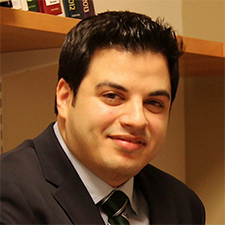BINF 4008-02: Interrogating Ethics and Justice in Digital Health
Instructor

Noémie Elhadad
Instructor

Sandra Soo-Jin Lee
Teaching Assistant

Harry Reyes Nieva
Class Schedule
Classes will meet Thursdays from 2-4 in PH20-200
(fall semester, 2022)
Course Description
Engaging with data is a civic requirement. Technical expertise must include engagement with the ethical issues and policy implications related to emerging data-driven techniques. The biomedical, health, and clinical domains are going through in-depth changes as artificial intelligence and data-driven thinking are becoming inherent to routine processes. How will knowledge production in health data science determine what counts as healthy, normal or disease in individuals and groups? Who will get access to what care and at what price when treatment recommendations are guided by artificial intelligence?
The purpose of this course is to engage students in thinking about the ethical issues and social implications of the creation, analysis and application of data in health. This multidisciplinary course will teach students to situate data technologies within their socio-political contexts and to examine the social life of data and its impact on society. Students will become adept at identifying and analyzing how the management and interpretation of data impacts and is impacted by social, economic and political processes.
This collaborative course will provide innovative materials and hands-on experience to students through:
- a series of use cases that reflect ongoing themes in ethics and justice in digital health, and corresponding simulated datasets & computational tools for students to engage with;
- collaborative, multidisciplinary work on a research project at the intersection of ethics and digital health for students to synthesize their skills and knowledge acquired during the course; and
- mentoring for students to write an op-ed on a specific topic in ethics for digital health targeted at the general public.
Learning Objectives
When students complete this course, they will be able to:
- Engage with fundamental concepts in the social study of science and technology and analyze social and political issues (e.g., construction of categories, co-production, expertise, public engagement and structural inequality);
- Identify ethical issues in data science techniques applied in biomedical research, clinical care, and wellbeing technology such as privacy, autonomy, discrimination, and accountability;
- Identify how and to what extent values are embedded in technical artifacts and systems through implicit and explicit technological design and user experience;
- Critically analyze the implications of prioritizing values for individuals and groups;
- Carry out analyses of complex health and healthcare datasets to identify types of potential biases;
- Engage and critically analyze computational approaches proposed in the recent machine-learning and biomedical literature for bias detection and mitigation;
- Communicate the on-going problematics and debates of data-driven digital health from an ethical and justice standpoint.
Registration
Registration for the course is with instructor’s permission. The course is open to Columbia University graduate students as well as undergraduate seniors. As you register, please send an email to Drs Elhadad and Lee with the following information, prior to September 7, 2022:
• Your name, uni, department, and year in degree
• In a few sentences, why are you interested in taking the course?
• Do you have experience with coding?
• Do you have a background in ethics?
Prerequisites
No prior coursework is required. The course is open to graduate students as well as undergraduate seniors. Permission from the course directors is required to enroll.
Course Requirements and Grading
Attendance is mandatory. Grading is based on class participation (20%), weekly write-ups (40%), and semester-long project (40%).
Assignments
- Use Case Responses and Experiments. Short response papers (1-2 pages) to readings discussed in class, and programming notebooks compiling experiments on use cases (e.g., assess degree of missing information of different data elements in given datasets and resulting biases). The primary competency of these assignments will relate to comprehension of material discussed in class and application of computational tools to specific use cases.
- Group project. Small teams of students with interdisciplinary background will select a particular issue (e.g., predictive modeling for resource allocation in a pandemic), identify gaps in knowledge (e.g., racial and economic disparities), propose a comprehensive plan for addressing the knowledge gap, and provide preliminary work towards addressing the identified gaps. The primary competencies of this assignment will pertain to synthesis of the different ethical frameworks and the algorithmic approaches discussed in class. Furthermore, the project will provide experience for students to work closely across their discipline boundaries and experience first-hand the challenges and rewards of such collaborations.
- Op-Ed. Students will write op-eds (800 words) that communicate the complexity of a chosen topic at the intersection of ethics, justice, and digital health to a general audience. The primary competency for this assignment pertains to the importance of communication and civic engagement on current policy and technological issues. Students will pitch their OpEds to different venues if they desire to, and unless another venue is secured they will have the opportunity to publish their pieces on the course’s blog.
Write To Change The World Workshop
To support students with the Op-Ed assignment, students will participate in a two-day online workshop and receive individual editing/mentoring by members of The OpEd Project. The two-day workshop is scheduled for Thursday, October 27th, 2-5:30pm and Friday, October 28th, 2-5:30pm. Students will be required to attend both sessions of the two-day workshop.
OpEd Project workshops are designed to inspire and cultivate a greater sense of social responsibility by clarifying our potential impact on the world. The OpEd Project uses op-eds as an action step, but the framework and curriculum can apply to any place where someone seeks to have an impact – at their university or institution, in business, in political office, and beyond. The OpEd Project works with individuals, communities, and organizations across all fields, disciplines, and issues. Their Write to Change the World workshop is based on time-tested models of transformational learning, designed to unlock knowledge in powerful and unexpected ways.
In this highly-interactive, energetic workshop, students will explore the source of credibility and how to establish it; how to present ideas quickly and powerfully under pressure; the components of powerful, evidence-based argument; the difference between being “right” and being effective; and strategies for making a greater impact, including how to escape a pigeonhole, how to preach beyond the choir, and the value of seeing your argument as part of a bigger picture and yourself as part of a larger public conversation. Students will expand the way they think about their particular expertise, discover tools that help them “translate” niche ideas into large themes, and explore how to pitch their ideas. They will leave the workshop with concrete results, including a draft outline of an op-ed in hand, and will have ongoing access to OpEd Project resources, events and mentors.
Academic Integrity
Columbia’s intellectual community relies on academic integrity and responsibility as the cornerstone of its work. Graduate students are expected to exhibit the highest level of personal and academic honesty as they engage in scholarly discourse and research. In practical terms, you must be responsible for the full and accurate attribution of the ideas of others in all of your research papers and projects; you must be honest when taking your examinations; you must always submit your own work and not that of another student, scholar, or internet source. Graduate students are responsible for knowing and correctly utilizing referencing and bibliographical guidelines. When in doubt, consult your professor. Citation and plagiarism-prevention resources can be found at the GSAS page on Academic Integrity and Responsible Conduct of Research.
Failure to observe these rules of conduct will have serious academic consequences, up to and including dismissal from the university. If a faculty member suspects a breach of academic honesty, appropriate investigative and disciplinary action will be taken following Dean’s Discipline procedures. Your grade should reflect your own work. If you believe you are going to have trouble completing an assignment, please talk to one of the instructors or TA in advance of the due date.


